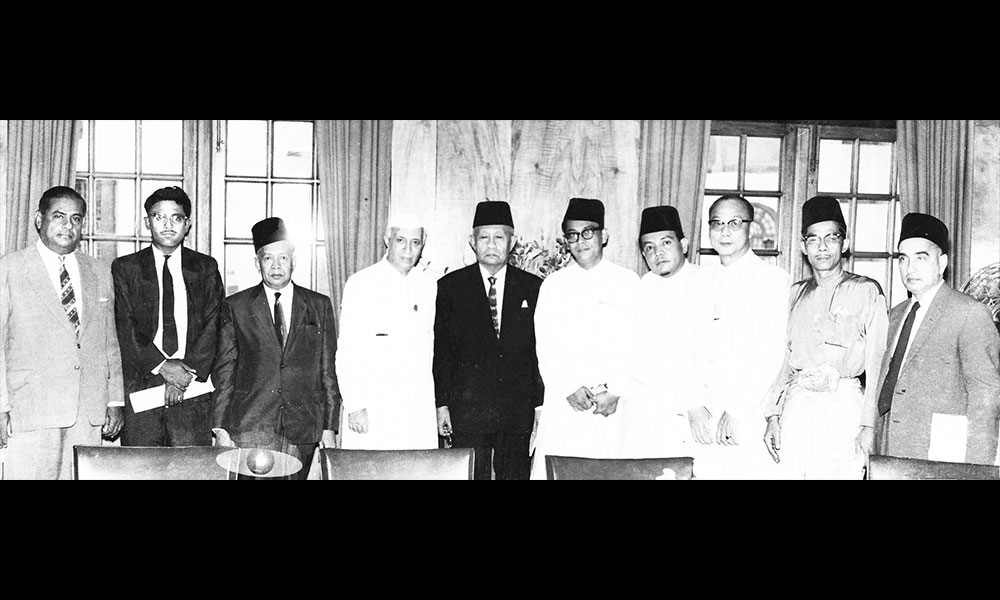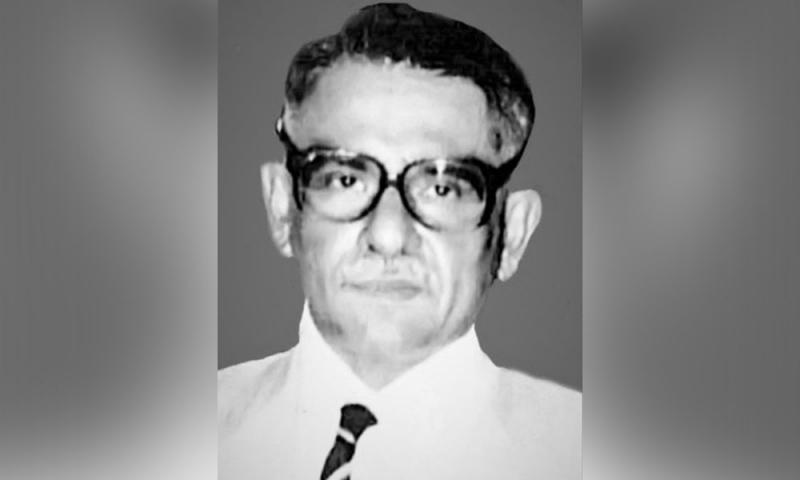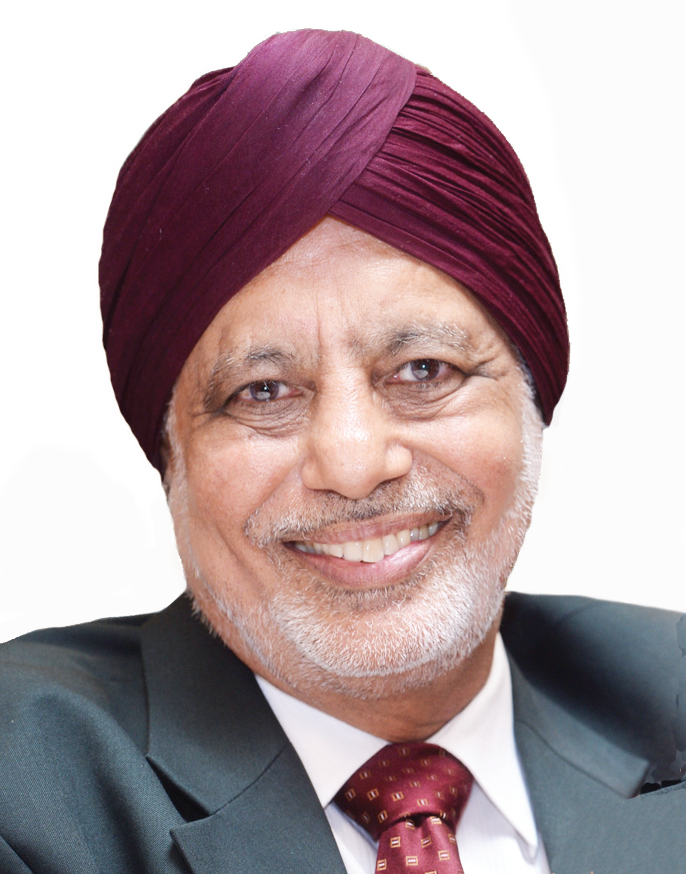HISTORY | Remembering a real champion of the people
HISTORY: TOLD AS IT IS | Conventional historical writings have, until the immediate post-World War Two, heavily concentrated their narratives on mainstream national politics or on the prominent roles played by the country’s monarchs and statesmen.
The mainstream Malaysian historiography is no exception to this form of narrative. Thus, historical studies from above have failed to tell us the contributions of several Malaysian men and women who had championed the cause of the working poor and the downtrodden. One such unsung Malaysian hero is Karam Singh Veriah (1936-94).
As an outspoken politician with socialist leanings, Karam Singh fought fearlessly for the poor and marginalised till his last breath. He always had the interests of ordinary people, particularly the workers, at heart.
A brilliant and renowned lawyer who could have easily amassed a huge fortune through his legal practice, Karam Singh instead chose to champion the interests of the people. According to Param Cumaraswamy, a former United Nations special rapporteur on the independence of judges and lawyers, Karam Singh was “a great fighter of the poor and voiceless, and the Malaysian Bar is proud to have had him among its members.”
Karam Singh was born on Oct 23, 1936, in Seremban. He studied at King George V School, Seremban. A prodigious student, Karam Singh secured a First Grade in the Cambridge Overseas School Certificate examination held in December 1952, with distinctions in English Literature and Mathematics, at only age 15, having jumped class several times due to his exceptional abilities.
He left for England in 1955 and completed his law degree at Gray’s Inn, London, at the young age of 19. As the existing rules barred him from practising law until 21, Karam Singh had to wait until he was called to the Malayan Bar on July 7, 1958.
At the age of 22 and nine months, Karam Singh was elected MP for Damansara and state assemblyperson for Serdang (Selangor State Assembly) for the term 1959-64 as a Socialist Front candidate. He thus earns the rare honour of being the youngest MP in the first parliament of independent Malaya.
In terms of political orientation, Karam Singh was a socialist who ardently championed the interests of the working class and the poorer segments of society. In his own words: “I studied Marx and Lenin in England and read law part-time. I will identify myself in every way with the ordinary man, the worker and poor people, and open their eyes to the way the elected Alliance members had isolated themselves from the people they had been chosen to represent and work for.”
Equally devoted to the core principles of his faith, Karam Singh was also inspired by the teachings of Guru Gobind Singh, particularly the need to be courageous in fighting against oppression and to uphold righteousness.
Karam Singh served as the legal adviser for the United Malayan Estate Workers Union, Malayan Workers Welfare Society (deregistered July 19, 1957), and the Socialist Youth League (banned Oct 1, 1958). He was also elected vice-president of Parti Rakyat in November 1957. Parti Rakyat was an anti-imperialist and socialist party. In August 1957, Parti Rakyat joined forces with the Labour Party to form the Socialist Front.
Relocate to India
In October 1962, Karam Singh met Jawaharlal Nehru, the prime minister of India, in New Delhi as part of a Malayan delegation led by Tunku Abdul Rahman. Around April 1965, Karam Singh, together with his wife and two children, left for Old Delhi, India, to reside there permanently. His decision to relocate to India could be understood in the context of the times that he grew up in, as well as the influences of international socialism and transnationalism that shaped him and many politically conscious young men of his generation.

Karam Singh’s passionate concerns for the working class were not limited to the boundaries of his country of birth. With characteristic zeal, he took up the cause of workers and the downtrodden in India, and assumed responsibility for organising a union for police officers. He became a legal adviser to the Police Officers Union in New Delhi (Delhi Police Non-Gazetted Karmachari Union). Meanwhile, he applied for Indian citizenship.
On Oct 6, 1966, Karam Singh was arrested by the Indian authorities at the Delhi University, where he had gone to meet student leaders and deported from India for alleged subversive activities. He was banned from entering India.
Upon his return to Malaysia, and undeterred by the actions of the Indian authorities against him, Karam Singh vigorously resumed his efforts to champion the cause of workers and the underprivileged in Malaysia. Among others, he provided legal advice and arranged bail for 35 workers from Bukit Asahan Estate, Malacca, who were being detained at the Kajang police station for taking part in an illegal procession - the “Long March” of over 150km to Kuala Lumpur, which began on April 14, 1967.
The management of Bukit Asahan Estate had sacked about 70 workers on the grounds of alleged redundancy. The workers, however, alleged that they were sacked because they had transferred their membership from the National Union of Plantation Workers to the United Malayan Estate Workers Union. The retrenched workers were eventually reinstated.
As in India, Karam Singh paid a heavy price for his work. He was detained under the Internal Security Act (ISA) on April 19, 1967, in Kajang for apparently acting in a manner prejudicial to the security of Malaysia and to the maintenance of public order. Slapped with 11 charges, he was accused of taking part in activities which furthered the cause of the Communist Party of Malaya (CPM). As stated in Parliament by Abdul Razak Hussein, the then deputy prime minister, Karam Singh was viewed “to be a threat to the security of the country.” He was released unconditionally on May 16, 1971.
Karam Singh subsequently joined the Socialist Democratic Party in September 1985 and was appointed its legal adviser. Having managed to get his ban lifted, Karam Singh left for India again in May 1993 after closing down his law firm. He died of a heart attack on Jan 22, 1994, in New Delhi.
Considering the mediocre standards of leadership shown by some of our public officials today, Karam Singh was a rare gem - a “true champion of the people”. He fought courageously and determinedly on behalf of the poor and oppressed and acted according to the highest principles. Above all, Karam Singh was a living testimony of the adage, “Only a life lived for others is a life worth living.”
RANJIT SINGH MALHI is an independent historian who has written 19 books on Malaysian, Asian and world history. He is highly committed to writing an inclusive and truthful history of Malaysia based upon authoritative sources.
The views expressed here are those of the author/contributor and do not necessarily represent the views of Malaysiakini.
RM12.50 / month
- Unlimited access to award-winning journalism
- Comment and share your opinions on all our articles
- Gift interesting stories to your friends
- Tax deductable

 Ranjit Singh Malhi
Ranjit Singh Malhi